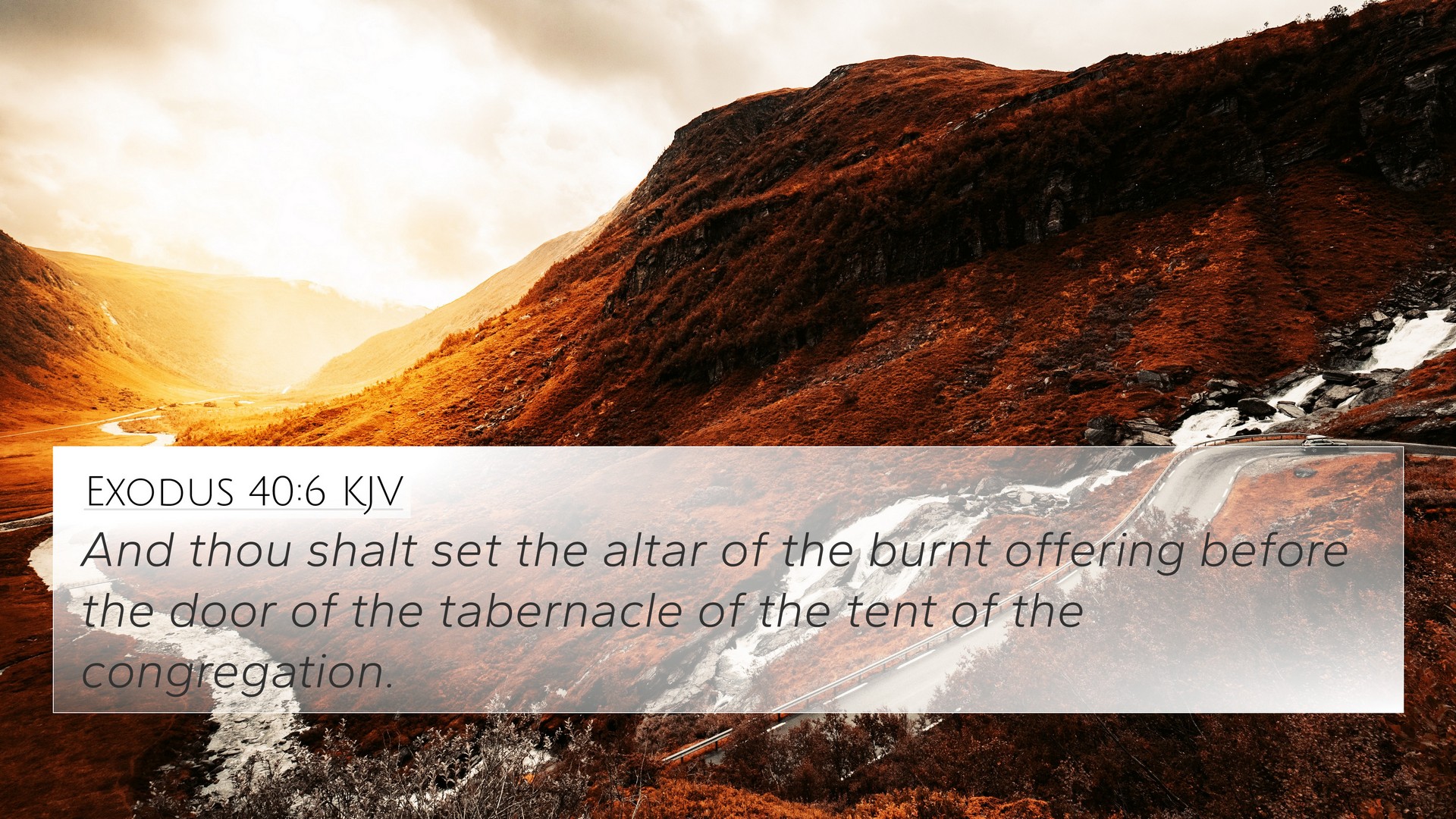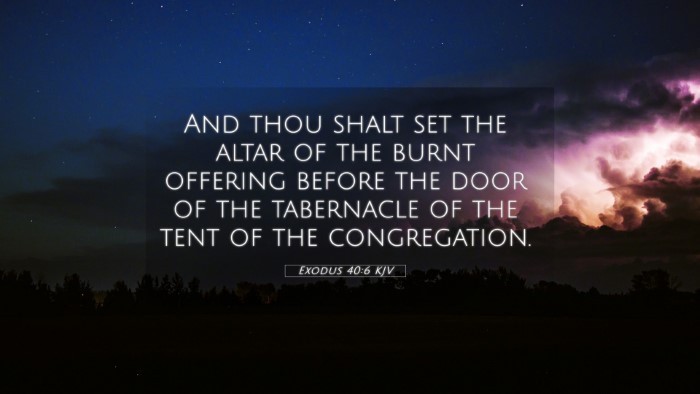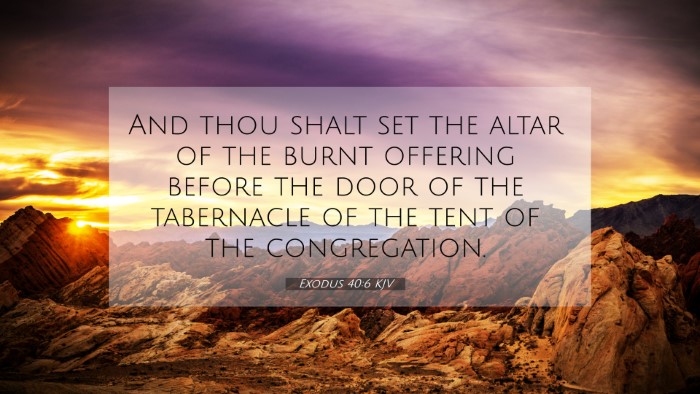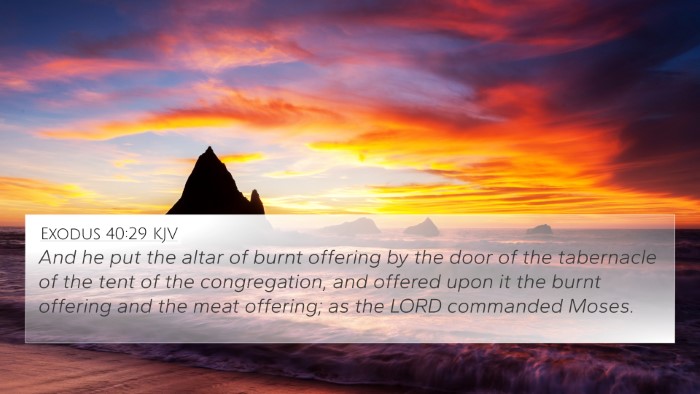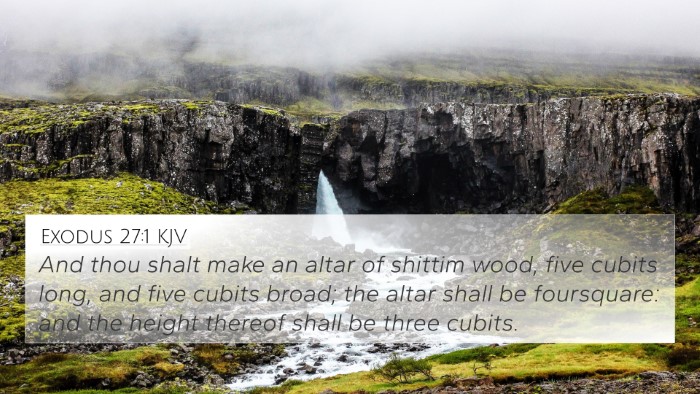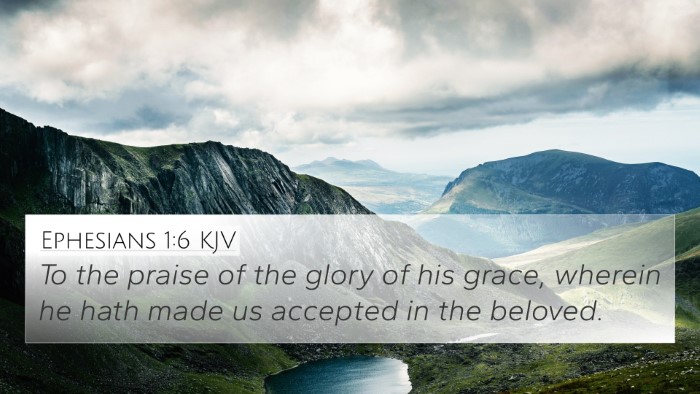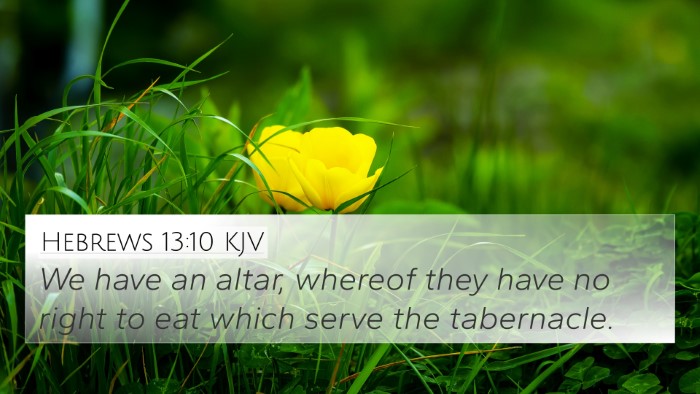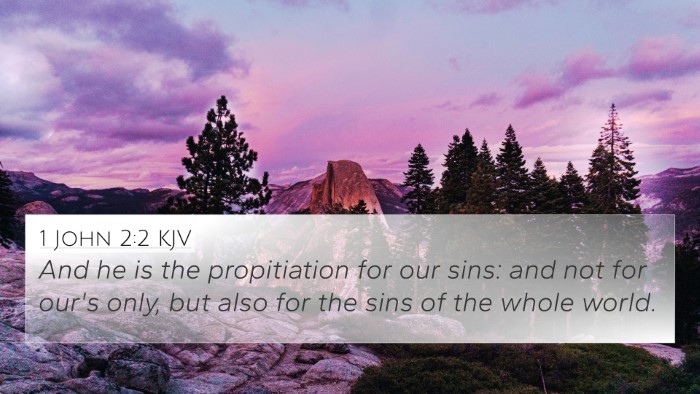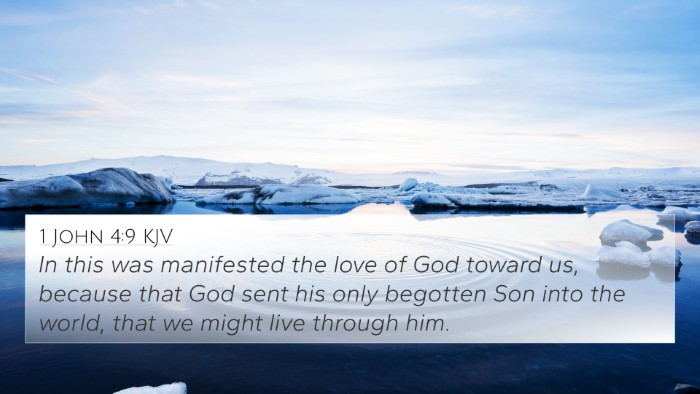Understanding Exodus 40:6
Exodus 40:6 states: "And you shall set the altar of the burnt offering before the door of the tabernacle of the tent of meeting." This verse speaks to a specific aspect of the tabernacle's construction and its ceremonial significance in the Israelite worship system.
Significance of the Verse
The command to place the altar of burnt offerings at the entrance of the tabernacle not only serves a practical purpose but also symbolizes God's accessibility to His people. The burnt offering represents atonement and devotion, highlighting themes of sacrifice and communication with God.
Thematic Connections and Cross-References
Exodus 40:6 connects with various other scripture verses, enhancing our understanding through thematic Bible verse connections:
- Leviticus 1:5 - "And he shall kill the bull before the Lord; and the priests, Aaron's sons, shall bring the blood and sprinkle the blood all around on the altar that is by the door of the tabernacle of meeting." Here, the instructions for sacrifices underscore the ritualistic importance of the altar.
- Hebrews 9:22 - "And according to the law almost all things are purified with blood, and without shedding of blood, there is no remission." This New Testament verse draws parallels between the shedding of blood in the Old Testament sacrificial system and Christ's ultimate sacrifice.
- 1 Peter 2:5 - "You also, as living stones, are being built up a spiritual house, a holy priesthood, to offer up spiritual sacrifices acceptable to God through Jesus Christ." This illustrates the transformed concept of sacrifice in the New Covenant.
- Exodus 27:1 - "You shall make an altar of acacia wood, five cubits long and five cubits wide—the altar shall be square—and its height shall be three cubits." This earlier command provides context for understanding what the altar represents in the worship setting.
- Romans 12:1 - "I beseech you therefore, brethren, by the mercies of God, that you present your bodies a living sacrifice, holy, acceptable to God, which is your reasonable service." This verse embodies New Testament ideas of sacrifice as living offerings instead of burnt offerings.
- Psalm 51:17 - "The sacrifices of God are a broken spirit, A broken and contrite heart—These, O God, You will not despise." It emphasizes the attitude behind sacrifices, connecting to the sincerity of offerings at the altar.
- Matthew 5:23-24 - "Therefore, if you bring your gift to the altar, and there remember that your brother has something against you, leave your gift there before the altar and go your way." This teaches about the relational aspects of worship and offering to God.
Understanding Through Comparative Bible Verse Analysis
Analyzing Exodus 40:6 through various filters allows for a deeper understanding of sacrificial practices. Thematic Bible verse connections lead to important discussions about the continuity of sacrificial themes from the Old Testament to the New Testament.
Tools for Bible Cross-Referencing
For those seeking to engage in cross-referencing Bible study methods, resources like a Bible concordance or a Bible cross-reference guide can be beneficial. These tools help in understanding the links between various scriptures, enhancing the teaching and learning process.
Practical Application
Understanding the significance of the altar in Exodus 40:6 encourages believers to consider what it means to offer themselves as living sacrifices. It invites reflection on our approach to worship and relationship with God through Jesus Christ.
Conclusion: Inter-Biblical Dialogue
Exodus 40:6 serves as a critical node in the inter-Biblical dialogue that underscores the continuity of God's redemptive work through sacrifice. By cross-referencing this verse with both Old and New Testament scriptures, believers can appreciate the multifaceted nature of worship and sacrifice throughout the Bible.
